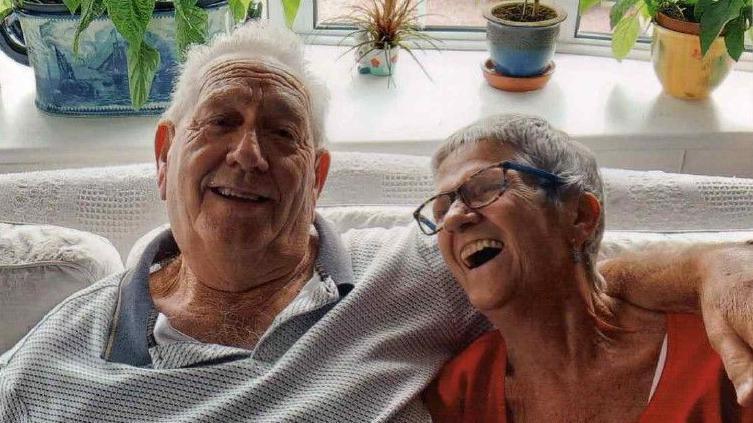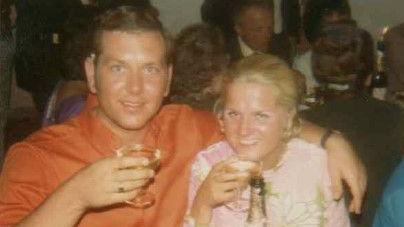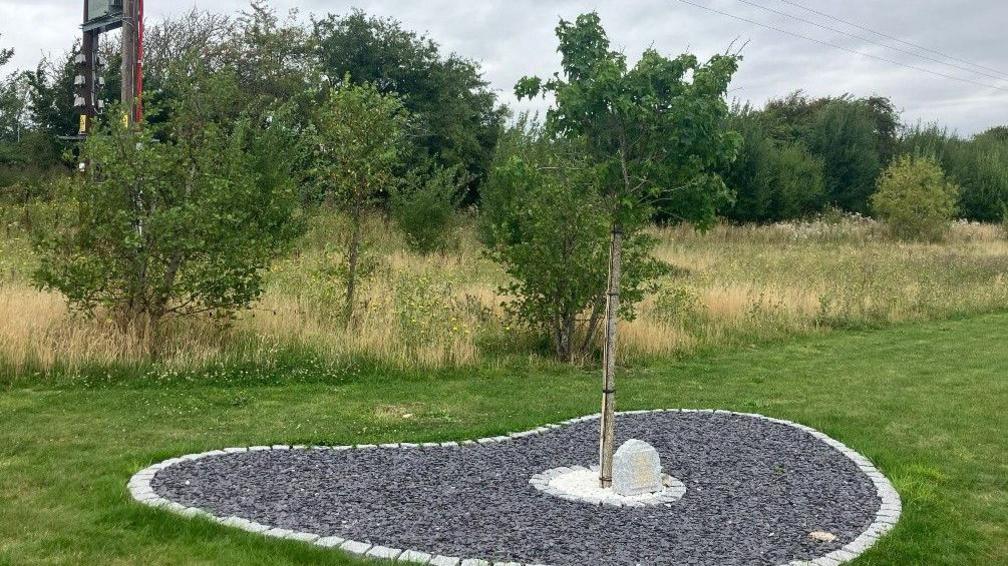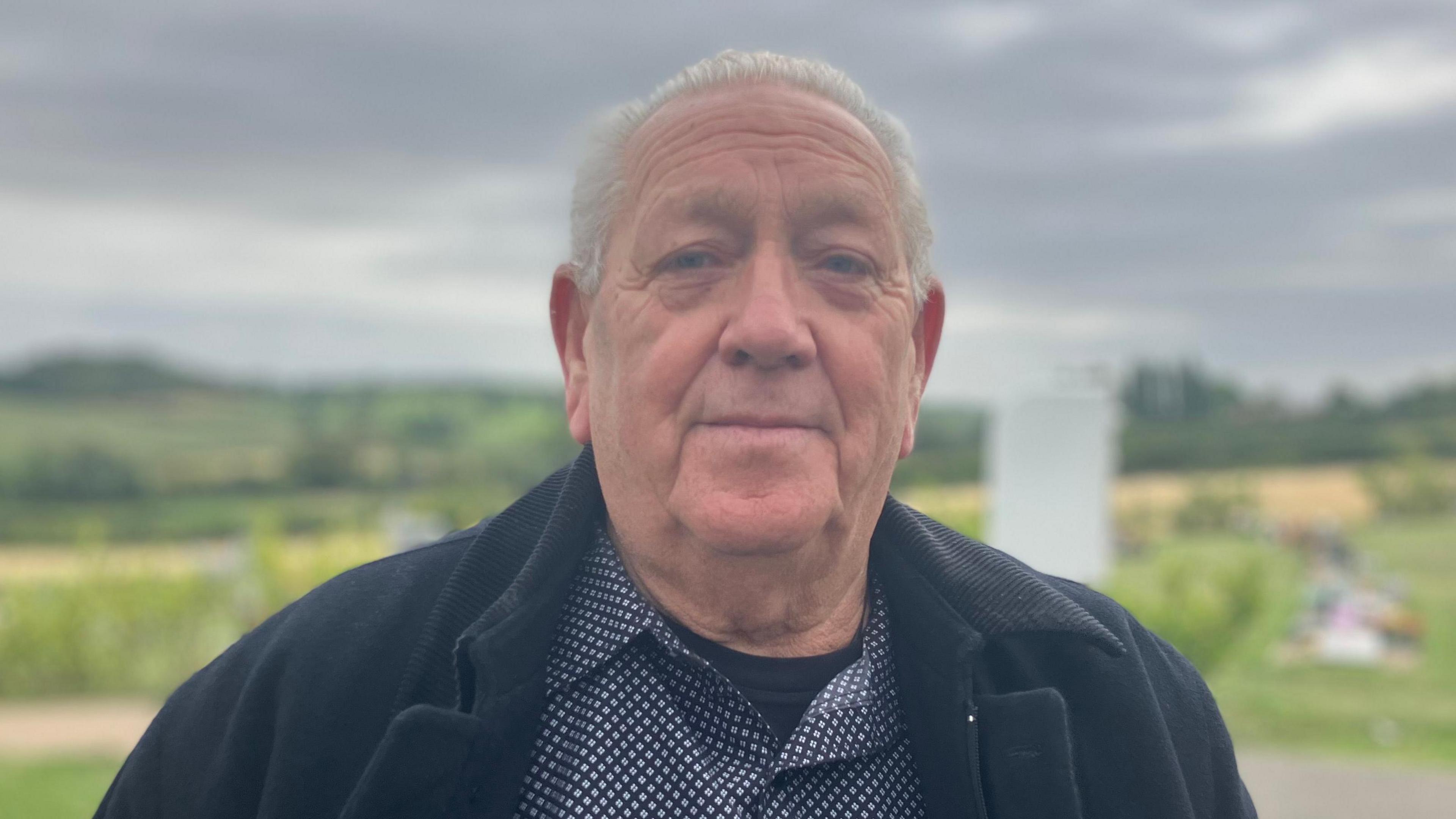'I'm proud my wife donated her body to medicine'

Ann Shawyer (right) chose to donate her body to medical education and training after she was diagnosed with terminal cancer
- Published
When former nurse Ann Shawyer died of cancer in January, she continued to devote herself to medicine.
She had decided years earlier to consent to body donation, which allows people to leave their bodies to medical training and research after death.
"Even in death, she still carried on helping people," her husband Alan Shawyer said.
The 76-year-old said he now wanted other people to consider becoming body donors.
Ann worked at City Hospital in Nottingham, where she was born, for 30 years.
When she was diagnosed with bowel cancer in 2021, she and Alan had been aware of the body donation centre at the hospital, and decided to make inquiries about the process.
She died aged 82, with Mr Shawyer by her side, on 4 January.
"It was a bit of a complete circle in one respect," said Mr Shawyer, who now lives in Lincoln.
"I was obviously very sad after 56 years with Ann and I'm still extremely sad seven months down the track.
"But I'm very proud, so proud, that she did that."

The couple met in 1969, when they were in their 20s and lived together in Hucknall, Nottinghamshire, for 20 years before moving to Lincoln
There are a number of centres and medical schools that accept body donations in the UK, which are licensed by the regulator, the Human Tissue Authority.
People can choose to donate their bodies to the National Repository Centre, based at City Hospital, by filling in a consent form.
Donors must fit a certain criteria - for example, they cannot have died of an infectious disease or have undergone a post-mortem examination.
They can also choose between a restriction of two years, or no time restriction, for the length of time their body can be retained.
The centre can also arrange a cremation and funeral, unless a donor wishes for private funeral arrangements to be made once their "donor journey" is complete.
On Friday, the centre unveiled a memorial tree at Gedling Crematorium in Nottinghamshire, in memory of donors.

A tree was unveiled alongside a commemorative plaque
Mark Curwood, senior anatomy technologist at the centre, said the tree created a space for families of donors "to come and reflect" or scatter ashes.
"[Donors] are essential to what we do but also the family are equally as important as that donor is," he said.
He added families could choose for their loved ones not to be dissected and could opt out of a donor being transferred to different medical schools across the country.
"If that enables us to fulfil that donor's last wish then we will do whatever we can," he added.

Mr Shawyer said he hoped more people would consider body donation or at least learn about it
Mr Shawyer, who has also signed up to be a donor, said he continued to keep close contact with the centre, which regularly calls to update him on his wife's journey.
He said he believed more people would consent to body donation if they knew more about it.
For him and his partner, deciding to donate their bodies was "never a question".
He added: "My question is always why would you not? Because it's a big help to everybody.
"I've had a lot of work done, I've had two replacement knees, two replacement shoulders.
"Where does the surgeon learn the skill to replace the knee and the shoulders? They've got to learn on a body."
Get in touch
Tell us which stories we should cover in Nottingham
Follow BBC Nottingham on Facebook, external, on X, external, or on Instagram, external. Send your story ideas to eastmidsnews@bbc.co.uk, external or via WhatsApp, external on 0808 100 2210.